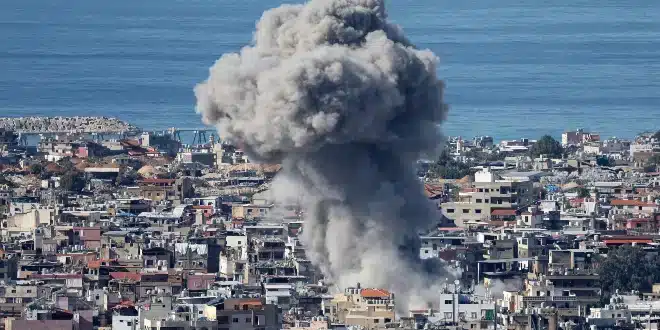On Tuesday, Israel’s security cabinet began discussions about a proposed ceasefire deal concerning Lebanon. The meeting was held in Tel Aviv, according to an official from Prime Minister Benjamin Netanyahu’s office.
Israeli officials expressed cautious optimism about reaching an agreement. Mike Herzog, Israel’s ambassador to the U.S., mentioned that some details were still being worked out, but that Israel and Hezbollah were close to a deal, potentially within days.
The deal under consideration includes the withdrawal of Israeli forces from southern Lebanon and the repositioning of Hezbollah fighters away from the Israeli border. However, several unresolved issues remain. Two Israeli officials, speaking anonymously, noted that it was uncertain whether the security cabinet would approve the deal.
Danny Danon, Israel’s U.N. ambassador, indicated that the ceasefire talks might span multiple stages, but he cautioned that the process would take time and was not expected to happen quickly.
Previous ceasefire hopes had been dashed, and U.S. officials warned that negotiations were still ongoing and subject to potential setbacks that could delay or prevent an agreement. White House National Security Council spokesman John Kirby emphasized that nothing is finalized until all details are settled.
The proposed ceasefire would initially last two months, during which Israeli forces would pull out of Lebanon, and Hezbollah would cease its military presence along the southern border, specifically south of the Litani River. This would be followed by the deployment of additional Lebanese army troops and the existing U.N. peacekeeping forces to monitor the area.
Western diplomats and Israeli officials reported that Israel is seeking the right to take military action in Lebanon if Hezbollah violates the ceasefire terms. The Lebanese government, however, has expressed concerns that such provisions could infringe on Lebanon’s sovereignty.
A ceasefire could help calm regional tensions that escalated after the Hamas-led attack on southern Israel on October 7, 2023. The ongoing violence, which has displaced thousands, has caused significant casualties, including at least 75 people killed in Israel, over half of them civilians. More than 50 Israeli soldiers have died during the ground offensive in Lebanon. Despite these heavy losses, the ceasefire is expected to ease regional tensions and avert a broader war involving Iran.
Hamas, which had previously stated it would not support a ceasefire until the war in Gaza ended, has now expressed its backing for a ceasefire between Hezbollah and Israel. Osama Hamdan, a senior Hamas official, welcomed the ceasefire and acknowledged Hezbollah’s support for the Palestinian cause.
While the ceasefire deal is expected to pass if brought to a vote, one hard-line Israeli minister, Itamar Ben-Gvir, has voiced opposition, calling it a “historic mistake” and a missed opportunity to defeat Hezbollah.
Jordan’s Foreign Minister Ayman Safadi warned that failure to reach a ceasefire would lead to more destruction and suffering in the region. The G7 foreign ministers also reiterated their support for an immediate ceasefire, urging a diplomatic resolution to the conflict.


